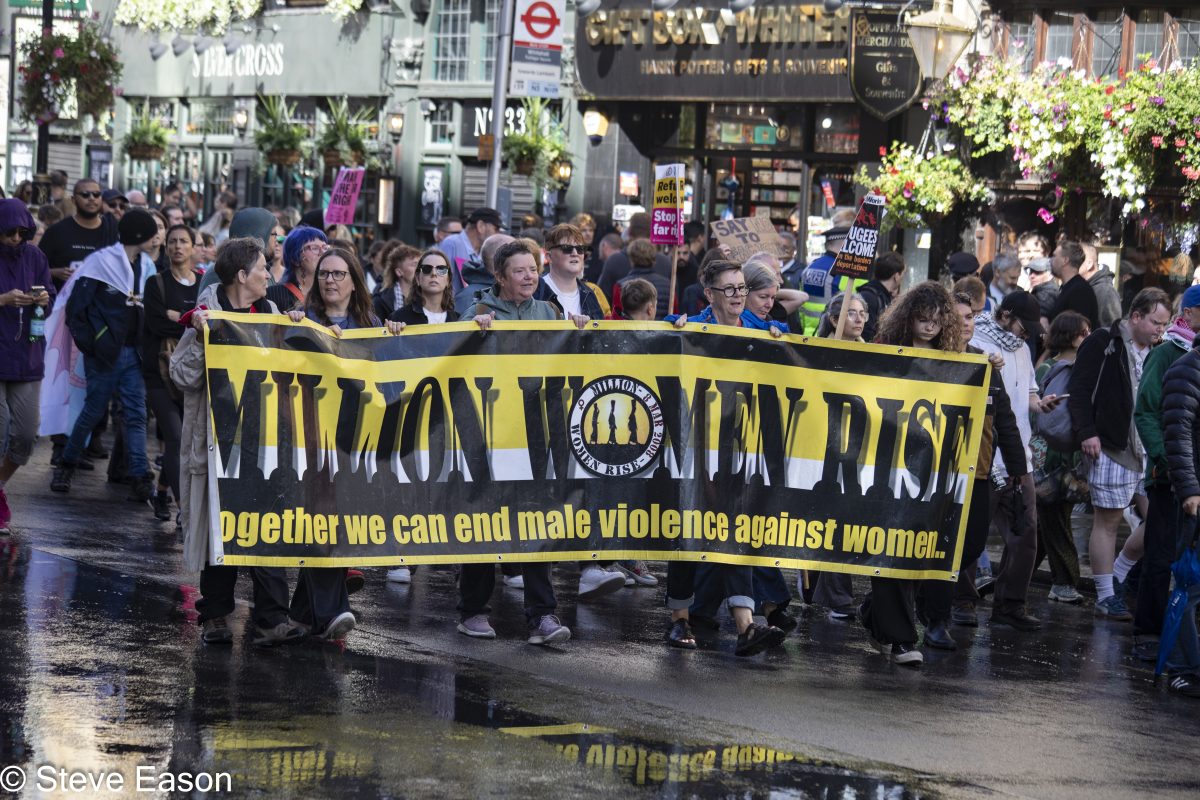
Race against time: how do we challenge the new far right?
rs21 members •rs21 members report on Saturday’s huge far right march in London, analyse its roots and consider how the left can challenge and defeat them.
On Saturday 13 September, over 100,000 people marched through central London alongside the far-right provocateur Tommy Robinson under the banner ‘Unite the Kingdom’. The march had been built for months by far-right organisers, and was promoted as a family-friendly event. Nevertheless, the protest stretched from Blackfriars to Whitehall and rang out with racist chants of ‘We want our country back’ and Islamophobic taunts, alongside the now familiar strains of ‘Keir Starmer is a wanker.’ The demonstration was overwhelmingly comprised of white men, and violence broke out on many occasions, with drunk protesters repeatedly trying to attack the anti-fascist counter protest.
In a shift for Robinson’s mobilisations, this protest selectively adopted the symbolism of the church to underline its adherence to ‘Christian’ values. Bishop Ceirion Dewar of the Confessing Anglican Church, a conservative group that broke from the Anglican Church in opposition to women’s and same-sex inclusion, led the crowd in prayer and told a journalist, ‘This is the beginning of two revivals: political and cultural.’ A video message from X owner Elon Musk called for a ‘dissolution of parliament’ and a ‘change of government.’ The protest unfolded over seven hours, involving people dressed in Knights Templar outfits, to children waving Union Jack and St George’s flags to ‘represent Britain’.
A counter-protest called by Stand Up to Racism (SUTR) drew up to 15,000 people. A few months ago, we might have considered that a success, but this time, anti-racists were dramatically outnumbered by the far right. The politics of the counter-protest were solid, with blocs integrating support for Palestine and trans liberation into a broader anti-racist and antifascist message. A notable strength was the presence of many newly politicised people on our side. However, the question remains: how can we bring out more on our side to ensure this doesn’t happen again?
Few people predicted the scale of the far-right mobilisation. This is by orders of magnitude the biggest far-right mobilisation that we have seen in Britain, as speakers on the stage and chants from the crowd called for mass deportations and the banning of any religion but Christianity. It will hopefully be a wake-up call across the left and social movements to the risk of an emboldened fascist street movement developing in Britain. It is also a challenge to mobilise people to defend the streets of Westminster. These streets are seen as a political space where we make demands, like calling for an end to the ongoing genocide in Gaza, rather than streets we would defend as we might the areas we live in. We will need to turn out in numbers in Westminster in future, so we show that we will not run scared from them.
One reason the far right is gaining support is the Labour leadership’s failure to address the ongoing cost-of-living crisis. Instead of offering solutions, the political establishment has fuelled fear and resentment. Keir Starmer’s Labour has chosen to scapegoat migrants in a cynical attempt to appeal to potential Reform UK voters. Anti-migrant rhetoric has intensified, creating a climate of fear for those living in these worn-down hotels. Last year, this hostility erupted into street violence and pogroms, targeting migrant communities.
Since then, Reform UK has gained ground in the polls. Instead of challenging their racist platform, Labour has tried to co-opt it. In May, Starmer echoed Enoch Powell’s infamous ‘Rivers of Blood’ speech, claiming Britain is becoming an ‘island of strangers.’ This year has seen an escalation in hostility toward migrants, with continued protests outside hotels where asylum seekers are being housed. After enduring incredibly difficult journeys to reach Britain, many now face openly hostile and unsafe conditions.
Recent months have seen a mosque targeted, a racially motivated attack on a nurse in a park, a Chinese takeaway vandalised with racist slurs, and a Sikh woman reported being raped in a racially motivated attack. The state continues to hinder any shift for people seeking asylum. Epping Council won a temporary injunction from the High Court that would have forced migrants out of the local Bell Hotel, before the ruling was overturned by Court of Appeal judges. Tensions are likely to increase as more councils follow suit. A one-in-one-out scheme, which forcibly removes and sends them to France, has left people who have made horrible journeys across the sea stuck in inhumane conditions. As one Eritrean migrant told the Guardian, ‘We can’t eat. We can’t sleep. We have been locked up in this place for more than a month. Some people expect to be forced onto a plane to France today. Nobody wants to go. For us, this is a disaster.’ Meanwhile, the new Home Secretary Shabana Mahmood is said to be planning to use military sites to warehouse migrants.
To fight back, we need to understand that the far right is not a single, unified force. Many who align with it do not see themselves as fascists but are being attracted by a mishmash of reactionary politics rooted in racism, gender norms and hostility to cultural and sexual liberation. However, it is this lack of coherence that makes them so difficult to counter. The far-right has evolved into a diverse ecology of institutions, influencers and supporters, from isolated individuals to billionaires. Their strength is much more diffuse than it was when support was vested in one or another political group, such as the fascists of the National Front or the British National Party.
For example, this weekend’s protest was not called or supported by Reform UK, and Farage has repeatedly said that there is no place for Robinson in his organisation. Robinson is a member of the Reform UK offshoot Advance UK, which was a sponsor of the event. Yet nobody should be under any illusion that Reform UK is best placed and ready to reap the benefits of this mobilisation and others like it. They are supple enough to adapt their policies in response to reactionary social movements, such as when they announced a policy of mass deportations in response to the hotel protests. We must take these dynamics seriously to strategically divide and weaken their base of support.
We need productive discussion on the left about what kinds of tactics and structures are appropriate to the moment. Effective organising requires more than just counter-protests, but if we fail to do this, we risk leaving a dangerous vacuum for the far right to exploit. The current polarisation between stage-managed protests with hours of speeches on the one hand and minoritarian actions by small groups seeking to disrupt the path of fascist demonstrations on the other should be broken down. Neither approach is sufficient, but both have a kernel of good sense at heart. We need a mass movement and larger mobilisations if disruptive tactics are going to succeed, and for the mobilisations to be large, we need large numbers of people to feel that they are accessible and safe.
While the far right has successfully mobilised large numbers, including many previously apolitical people, we too have an emerging base of newly politicised supporters. Our task now is to energise and organise them. The focus must shift to sustainable, long-term activities that mobilise communities. To engage with the many people who are not yet involved in organising but are disgusted by the racism they have seen on the streets, we will need to get stuck in at the local level to forge new connections and develop an alternative vision of everyday multiculturalism rooted in neighbourhoods and workplaces. The anti-racist movement needs to rediscover the art of building and articulating popular cultural scenes and events.
But we also have to build a political opposition to the status quo. Your Party will be a new vehicle that must convince people there is an alternative to the despair that not just Tommy Robinson but also Nigel Farage and Reform UK are feeding upon. Our job is harder than theirs because we can’t just spin a fairy tale and have it taken up by the mass media. We need to create facts on the ground, and build organisation and infrastructure that gives working-class people both a sense that change is possible and the belief that they can carry it out.
We need to see anti-racism not only as a defensive shield against the far-right but as an integral aspect of developing a weapon we can wield against both the right and Starmer. While we should be prepared to march with anyone who wants to resist Robinson and Farage, as part of a new left party, we should be arguing with those we work with that defeating the right will ultimately mean confronting this reactionary government’s policies. We should be seeking to break people from the Labour Party, including local branches, officers, and councillors.
All across the country, there will be people looking at the events of the weekend in horror. The left has to rise to the occasion and offer a bold vision and an alternative based on solidarity, popular power, and antagonism with our real enemies: the forces of the far-right, the state and capitalism.



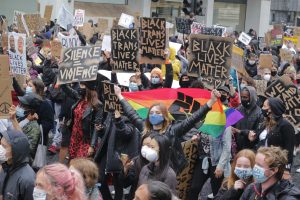




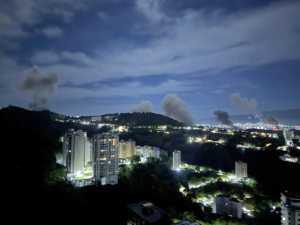
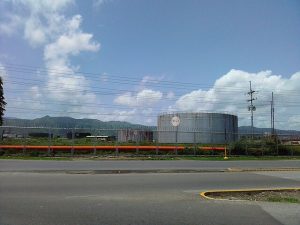
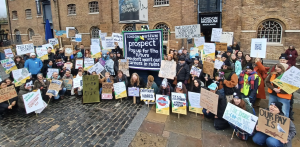
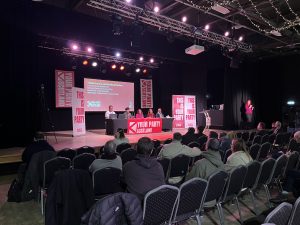

0 comments